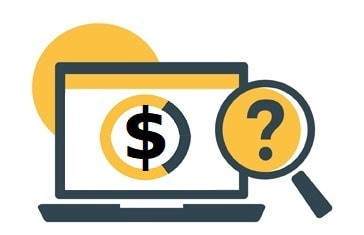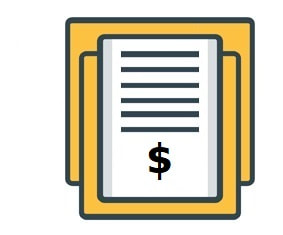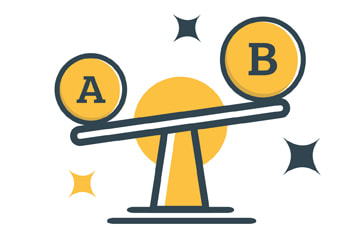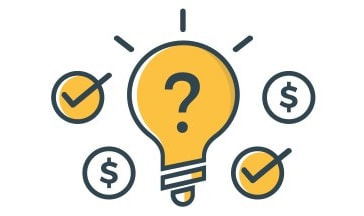How to Choose an Accountant - The Definitive New Zealand Guide
Our guide outlines everything you need to know to hire an accountant for your personal tax needs. We explore the reasons behind hiring an account, whether or not you need one and important considerations.
Updated 22 August 2022
Summary
To help you make a decision about what's best for you, our guide covers:
Summary
- Taxes and financial planning can be stressful for many New Zealanders. For a substantial portion of our life, we will be working. All throughout that time, we will have to submit tax returns in some form. A knowledge of tax-related issues is not something most taxpayers are familiar with.
- Additionally, as you get older, your wealth likely grows, and your taxes can become more complex. At a certain point, it may become worthwhile to hire an accountant to sort out all the various financial and tax obligations you and your family have.
- The cost of an accountant can be a one-off 'tax season' fee, or an ongoing service. If your tax situation is non-standard, it's important is to evaluate the time (and risk) of a DIY approach vs the cost of hiring an accountant.
To help you make a decision about what's best for you, our guide covers:
What are some of the main reasons to hire an accountant?
- The easiest way to tell if you need an accountant is if you’re finding your finance and tax situation becoming increasingly more complex, causing you to spend significant time, effort and stress each year on your taxes.
- Some people may have no problem managing the finances and taxes of three separate incomes, two houses (one with a mortgage) and a family trust, for example. But, at the same time, others may face difficulty wit the same situation. Ultimately, it will depend on how comfortable you are with your financial situation and whether you think alleviating stress and time is worth the upfront cost of hiring an accountant.
- As a rule of thumb, if you only have one source of earnings (e.g. from a single employer that deducts PAYE), your tax return is likely to be much less complicated. This is because the IRD will likely automate a significant portion of your tax filing process. So, in this case, it’s unlikely you’ll need an accountant. An accountant could be a good option for those with more complex needs.
What do Accountants do?
A good accountant can help with a variety of financial and tax activities. Key accounting activities include:
Specifically for freelancers or those working on a contract basis, accountants can be very useful:
- Preparing your annual income tax return, and additional compliance returns to the Inland Revenue (IRD).
- Keeping you updated with any tax law changes that impact you (such as negative gearing, income tax bracket changes, cost of living payments, FIF taxes etc.).
- Maintaining archives of relevant tax filings, pay stubs and expense receipts.
- Setting up accounting and bookkeeping software.
- Voluntary disclosures to the IRD.
- Working For Families payments.
- Student mortgage repayments.
- Creating and administering financial trusts.
- Tax planning or tax advisory on investments.
- Managing multiple incomes or taxes from investments (such as FIF tax).
- Assistance with tax deductions or benefits you may be entitled to.
Specifically for freelancers or those working on a contract basis, accountants can be very useful:
- Setting up the structure of your side-hustle business (If you work for yourself as a sole trader, contractor or freelancer).
- Provisional tax payments, Pay As You Earn (PAYE) provisions or inform you what deductions you can claim, and provide recommendations on tax planning.
- Dealing with the IRD on your behalf (especially regarding disputes arising).
What other things can accountants help me do?
Aside from general tax returns, the two main benefits of hiring an accountant include:
1. Setting up your own business/side hustle
Accountants can advise you on how to set up your new business or side hustle. For example, various business structures (such as sole trader, partnership or limited liability company) have different tax and personal liability implications. An accountant can explain all the different alternatives and help you select the structure best suited to your unique situation.
2. Responding and managing tax inquiries from the IRD
Accountants are mainly known for their ability to assist you with tax returns. However, an accountant’s most valuable (and overlooked) benefit is that they can assist you when engaging with the IRD. It’s unlikely that the average New Zealander will be audited as hundreds of thousands of New Zealanders submit tax returns, and the IRD only has limited resources (people) to investigate taxes. However, you may be subject to a tax investigation when there are reasons for the IRD to inquire into you (whether through inconsistent tax returns and income levels, irregularities with reporting or some other reason).
Know This: If the IRD investigates you, it’s important to communicate and engage with them in a professional way. Their requests are typically formal, and working with them as comprehensively and truthfully as possible is essential. In addition, accountants can guide you to comply with all tax and legal guidelines after the investigation. In this instance, it’s much safer to employ an accountant on the chance something goes wrong than not to employ one and be found liable for tax fraud or tax evasion due to a miscommunication.
1. Setting up your own business/side hustle
Accountants can advise you on how to set up your new business or side hustle. For example, various business structures (such as sole trader, partnership or limited liability company) have different tax and personal liability implications. An accountant can explain all the different alternatives and help you select the structure best suited to your unique situation.
2. Responding and managing tax inquiries from the IRD
Accountants are mainly known for their ability to assist you with tax returns. However, an accountant’s most valuable (and overlooked) benefit is that they can assist you when engaging with the IRD. It’s unlikely that the average New Zealander will be audited as hundreds of thousands of New Zealanders submit tax returns, and the IRD only has limited resources (people) to investigate taxes. However, you may be subject to a tax investigation when there are reasons for the IRD to inquire into you (whether through inconsistent tax returns and income levels, irregularities with reporting or some other reason).
Know This: If the IRD investigates you, it’s important to communicate and engage with them in a professional way. Their requests are typically formal, and working with them as comprehensively and truthfully as possible is essential. In addition, accountants can guide you to comply with all tax and legal guidelines after the investigation. In this instance, it’s much safer to employ an accountant on the chance something goes wrong than not to employ one and be found liable for tax fraud or tax evasion due to a miscommunication.
When Should I Hire an Accountant?
- The main reason you would hire an accountant is when your tax obligations become increasingly complex, to the point where it takes up significant time and stress on you. For example, tracking rental incomes, mortgage deductions, foreign investment fund taxes, side hustle incomes and family trust obligations can all become increasingly complex and time-consuming.
- Many people are unlikely to need an accountant. For example, if your income and expenses are simple, you don’t invest in complex financial instruments, or you don’t own a home, then the pros of hiring an accountant are unlikely to outweigh the costs of hiring one. However, at a certain point in your life, where your wealth grows and expands into multiple different areas, it can become increasingly burdensome to manage and keep track of all the various tax obligations yearly.
- An accountant can take this load off your shoulders and make it simple for you every step. Of course, that doesn’t mean you need to hire an accountant full-time or keep one around on a retainer/fee basis. It can simply mean that you decide to pay for an accountant for a few hours to do most of the legwork during tax time.
- A key question to figure out whether your situation is complex enough to warrant hiring an accountant is to ask how long it would take you to do all the tax and financial duties yourself from start to finish and assign a rough amount of money per hour to do that (using your hourly wage can be a good proxy, as the time spent not doing taxes you could be working a second job).
- For example, if it takes 25 hours to organise, calculate and submit your taxes for all of your different incomes, at a rate of $40 an hour, it would cost you $1,000 to do your taxes. However, outsourcing this work to an experienced accountant may only cost you a few hundred dollars for them to complete the job. Additionally, it’s much more likely that the accountant, who does hundreds of tax returns every year, will know which provisions apply to your tax situation and reduce the likelihood of a mistake (compared to the error rate you may have as someone who only files taxes once a year). Considering all this, it can make much more sense to outsource your tax and financial obligations to an accountant at a certain point where your financial situation becomes increasingly complex.
Who are the Best Accountants in New Zealand?
Accountants can vary widely by specialisation, experience and cost. It’s recommended to choose accountants that are members of expert bodies, such as the Chartered Accountants of Australia and New Zealand (CAANZ) or CPA Australia. Members of these accounting bodies will typically gain qualifications and must consistently comply with rigorous standards every few years. In addition to this, other traits to consider when assessing which accountant to hire include:
Accountants vary by sector focus, size and level of complexity. They can also vary in terms of cost to hire, the range of services available and the reputation of their brands. In general, there are three main types of accountants New Zealanders should consider:
Know This: New Zealanders with extremely complex tax situations or very high incomes may consider using accounting firms such as Deloitte, KPMG, EY or PwC. These firms have a high level of service and are typically worthwhile when dealing with large sums, but are much more expensive given their global brand reputation.
For smaller incomes or less complex situations, the mid-market or SME accounting firms may make more sense for those with business-oriented matters such as side hustles or multiple income sources. These firms are typically more cost-effective but will be less well-known and more specialised in their sector focus. Finally, franchises like SBA accounting are ideal for people with relatively simple taxes who want to outsource this work to a qualified chartered accountant. This is the most cost-effective of the three options, but also the least specialised. Expect the results to be very general and standardised.
Who are the accountants I should know about? A comprehensive list of the top 30 accounting firms in New Zealand can be found here, which is based on reporting by CAANZ (the Chartered Accountants Australia & New Zealand association, which represents over 120,000 Accountants).
- Their skills and registration
- Their offerings and speciality areas
- Existing customer base and reviews of previous work
- How much they charge and what cost structure (whether per tax return or hour)
- How they deal with complaints
Accountants vary by sector focus, size and level of complexity. They can also vary in terms of cost to hire, the range of services available and the reputation of their brands. In general, there are three main types of accountants New Zealanders should consider:
- Big Four Accounting firms (Deloitte, EY, KPMG and PwC)
- Mid-Market Accounting firms (BDO, Baker Tilly Staples Rodway, Johnson Associates etc.)
- Small to Medium Enterprise (SME) Accounting firms (Such as SBA Accounting, local accountants with 1-10 partners in any town or city)
Know This: New Zealanders with extremely complex tax situations or very high incomes may consider using accounting firms such as Deloitte, KPMG, EY or PwC. These firms have a high level of service and are typically worthwhile when dealing with large sums, but are much more expensive given their global brand reputation.
For smaller incomes or less complex situations, the mid-market or SME accounting firms may make more sense for those with business-oriented matters such as side hustles or multiple income sources. These firms are typically more cost-effective but will be less well-known and more specialised in their sector focus. Finally, franchises like SBA accounting are ideal for people with relatively simple taxes who want to outsource this work to a qualified chartered accountant. This is the most cost-effective of the three options, but also the least specialised. Expect the results to be very general and standardised.
Who are the accountants I should know about? A comprehensive list of the top 30 accounting firms in New Zealand can be found here, which is based on reporting by CAANZ (the Chartered Accountants Australia & New Zealand association, which represents over 120,000 Accountants).
Pros and Cons of Hiring an Accountant
- The key benefit of hiring an accountant is that it saves time, money and stress. They’re also less likely to incorrectly file a tax return (but are still able to make mistakes). While you will ultimately be liable for the tax return you submit, using an accountant can ensure that this process is done as cleanly and simply as possible. On the other hand, hiring an accountant is not cheap. Accountants can charge anywhere from a few hundred dollars to thousands depending on the type and complexity of the tax return. These costs are usually upfront and ongoing, compared to your financial accounting/taxes that don’t cost anything.
Must-Know Facts about Accountants
1. Know the main reason why you need an accountant
New Zealanders use accountants for a wide variety of reasons. However, in most cases, New Zealanders won’t need any accounting help for their typical incomes (especially if they have just one income or are not working). It’s important to identify the key reason why you would outsource your tax work to an accountant rather than just outsource it blindly.
2. Be careful of hidden fees
While most accounting firms set their fee structure out at the beginning of the consultation, there can be hidden fees associated with their services. These can include asking them to respond to IRD inquiries, getting them to advise on your financial situation, getting them to do your family member’s tax returns or working additional hours during peak tax season. Any of these can add additional cost to the initial tax estimate they provide you.
3. Accountants aren’t for everyone
Accountants can help at all income stages, complexity, and financial situation, but they aren’t for everyone. It’s important to understand your tax obligations and recognise when it may be worthwhile to outsource the tax work to an accountant. With tax law becoming increasingly complex, accountants can provide a reasonable alternative to doing your own taxes that can save you time and money, but they are by no means essential and the IRD is arguably simplifying tax returns for most taxpayers as time goes on.
Frequently Asked Questions
Do I need accountants just for tax season? Do I have to pay for a year’s accounting services?
This will vary for each accounting firm. Some firms charge an upfront retainer to start services with them, while others will charge on a per-hour or per-return model. Most accounting firms are only contracted around tax season (1-3 months in every year), so it’s unlikely you will need to pay for a whole year’s accounting services (unless you need advice all year round).
My taxes are getting complicated, but I don’t think I need an accountant. I’ve done my taxes on my own every year. Do I need an accountant?
This will likely be a judgment call on your part. Everyone’s financial position is different; for some, it may be easy to calculate taxes each year, while for others, it’s a nightmare and causes considerable stress. It will all depend on how much you value your time, how complex your financial and tax situation is, and whether you are best placed to tackle this challenge (or you would rather outsource this to the experts). Generally, suppose you have been comfortable doing your taxes in the past, and your taxes have not gotten substantially more complicated. In that case, it’s reasonable to continue doing them in the following years.
Are there different considerations when picking an accountant for personal reasons versus running a business?
In general, dealing with personal tax matters will be much more straightforward, so the level of expertise and complexity required will be much lower. As such, small accounting firms can be a much better choice for personal tax reasons. When it comes to running a business, the more complex it gets, the better the quality of the accountant you should seek.
When choosing an accountant, pick one that aligns well with you or your business. Most accountants will have a specialisation that makes them faster and cheaper for you to go with. In addition, knowing whether accountants are experts in certain industries (say construction or startups) or tax types can make tax season much smoother.
When choosing an accountant, pick one that aligns well with you or your business. Most accountants will have a specialisation that makes them faster and cheaper for you to go with. In addition, knowing whether accountants are experts in certain industries (say construction or startups) or tax types can make tax season much smoother.
What do I do to stay compliant with the IRD and remain safe if I'm investigated later on?
The best thing to do is always keep a trace of all relevant data points. Good accounting software typically has an audit trail that makes it easy for you, your accountant or the IRD to follow. This makes it easier for you and the IRD to see what transactions have occurred in the past and which other parties are related to. The more documentation you have around income, expenses, tax deductions and tax payments, the more likely you will be just fine. If you’re still unsure and want to stay on the safe side, you can employ an accountant to manage this process on your behalf.
What Types of accountants are there?
There are many different specialisations when it comes to tax. For example, there are specialists in income tax, property tax, offshore matters, tax on trusts, and many others. Therefore, it pays to ask your prospective accountant whether they have dealt with these matters in the past and what they are likely to charge for these services. In general, the more experienced an accounting firm is at dealing with a certain issue, the faster they will be able to deal with your issue on that topic (and the fewer billable hours they will charge you).
What’s the difference between hiring accounting firms and using accounting software?
Using accounting software (such as Xero or Beany) is still a manual process to process documents, analyse tax statements and submit the tax returns yourself. The benefit of hiring an accounting firm to do your taxes or deal with disputes is that they manage the whole process. On the other hand, using online accounting software costs money and creates stress. The main benefit is that it will be easier to do than using paper or excel.






